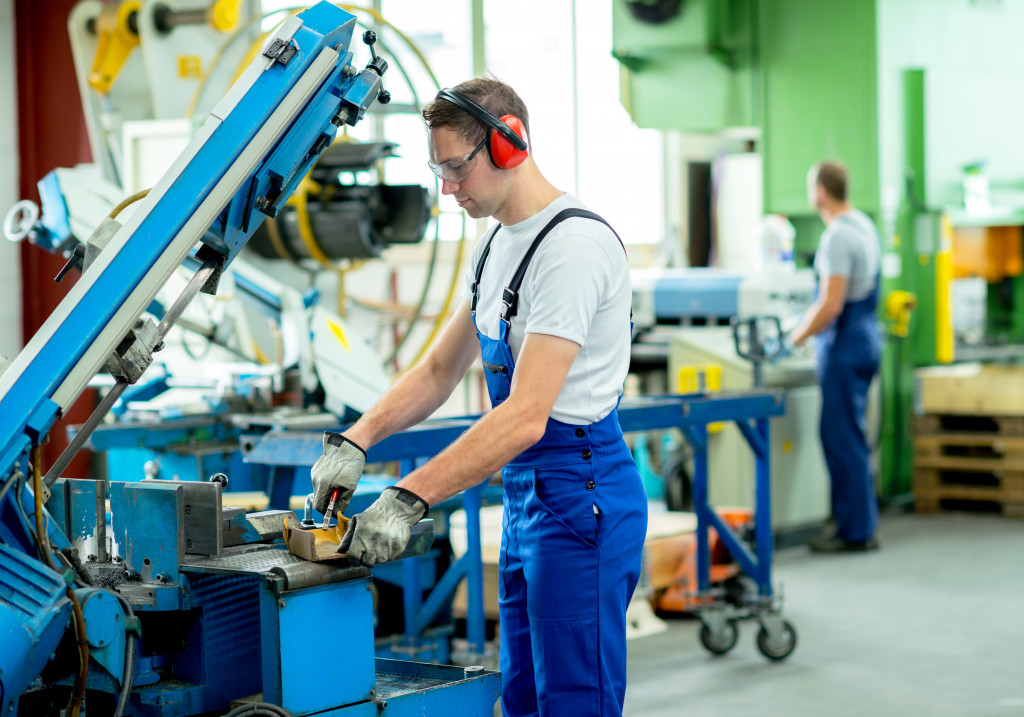Technology has been a huge part of the manufacturing process for many years. It has allowed companies to become more efficient and produce products faster. However, with the ever-changing technology landscape, it can be challenging to keep up with the latest trends and tools. Here are a few ways companies can use technology to improve their manufacturing process.
1. Implementing lean manufacturing principles
Technology can help manufacturing companies implement lean manufacturing principles. By using automation and data analysis, companies can eliminate waste and create a more efficient production process. Lean manufacturing principles can help companies save time and money by reducing waste and increasing efficiency.
For example, some manufacturing companies have implemented automated machines that can fabricate parts without human intervention. This eliminates the possibility of human error and speeds up the production process. In addition, companies can use data analytics to identify areas of waste and inefficiency. Understanding where you can improve the manufacturing process can help you make the necessary changes to become more efficient.
2. Using 3D printing
3D printing is becoming more popular in the manufacturing industry as it offers a quick and easy way to prototype products. 3D printing can also create custom parts and components that are not available off the shelf. You can use this technology to create prototypes of products before they are mass manufactured.
3D printing can also be used to create small batches of products. This is ideal for companies that want to test the market before committing to a large production run. But, it’s important to note that 3D printing is not suitable for all products. For example, products that require a high degree of accuracy or need to be mass produced are not suited for 3D printing.
To make your 3D printing process more efficient, you want to work with a gearbox distributor that can provide you with the best quality gearboxes. With the right gearbox, you can increase the speed and accuracy of your 3D printer, allowing you to produce better-quality products.

3. Automating the manufacturing process
Automation is another area where technology can help improve the manufacturing process. By automating tasks, companies can eliminate the need for human intervention. This can lead to a more efficient production process and reduced labor costs.
Some manufacturing companies have fully automated their production process. However, this is not always possible or practical. In some cases, partially automating the manufacturing process may be more effective. For example, a company could use robots to handle hazardous or repetitive tasks. This would free up employees to work on more complex tasks.
But, it’s important to note that automation is not always the best solution. In some cases, it can lead to a loss of quality control. So it’s essential to ensure that employees are adequately trained to work with the new technology.
4. Improving communication
Poor communication can lead to several problems in the manufacturing process. It can cause delays, errors, and misunderstandings. That’s why it’s crucial to have a clear and effective communication system in place.
Technology can help improve communication by providing a platform for employees to share information and collaborate on projects. For example, some companies use online collaboration tools to allow employees to work on documents and share ideas in real-time. Other companies use project management software to help teams keep track of deadlines and milestones.
When communication is improved, it can lead to a more efficient manufacturing process. Employees will be able to work together more effectively and make fewer mistakes. You should consider implementing some type of communication solution if you want to improve the efficiency
5. Investing in cyber security
While technology can help improve the manufacturing process, investing in cyber security is also essential. Manufacturing companies are increasingly relying on technology to run their operations. But, this reliance on technology comes with a risk of cyber attacks.
Cyber security is the practice of protecting computer networks and systems from unauthorized access or theft. There are several ways to improve cyber security, such as implementing encryption, firewalls, and intrusion detection systems. You want to ensure that your systems are adequately protected to avoid any disruptions in the manufacturing process.
For example, a cyber attack could lead to data loss or production downtime. And, if your systems are not properly protected, you could be at risk of a lawsuit. That’s why investing in cyber security measures is vital to protect your company.
Technology can play a significant role in improving the manufacturing process. Investing in the right technology can increase efficiency, reduce costs, and improve communication. Using technology to its full potential can create a more efficient and effective manufacturing process. With the right technology in place, you can improve your bottom line.

